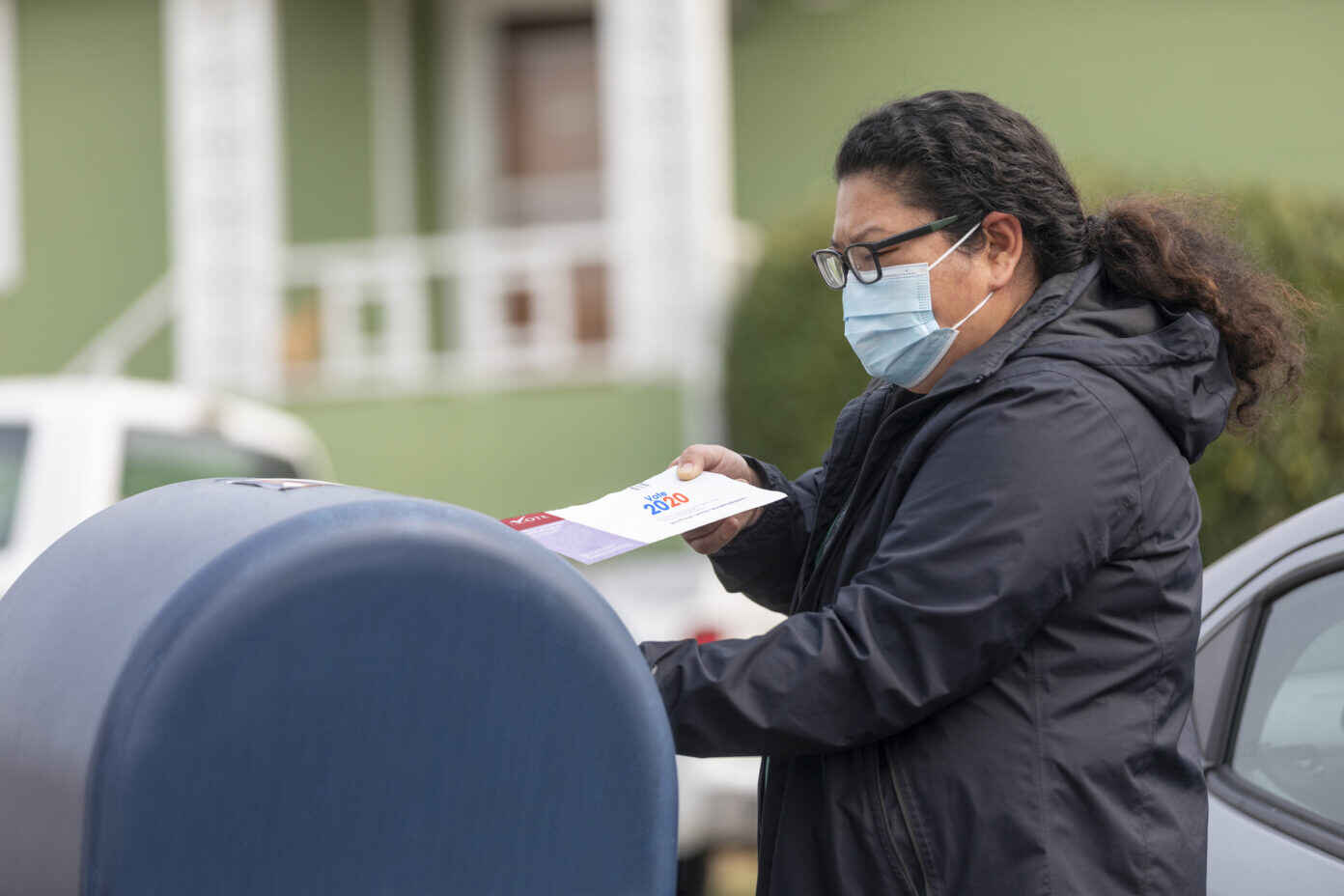Voting Rights: Why They Should be Included in Declarations of Racism as a Public Health Crisis
December 15, 2021
Overview
Declaring racism a public health crisis is an important first step in recognizing the impacts of racism throughout the lifespan and across generations, acknowledging the role of the government (and other institutions) in creating inequitable outcomes, and committing to a path forward that centers equity and justice. That path must necessarily include the protection and expansion of voting rights, which are fundamental to a healthy democracy and healthy communities. You can learn more about the connection between voting and health in my recent Q &A: Tracking How Voting Impacts Health, or by checking out the Health & Democracy Index.

How can communities address structural racism by focusing on voting? Voting is a way to shape the policies that impact how we live our lives – where we can afford to live, whether our neighborhoods are safe, the quality of the school system we send our children to, whether we are paid a living wage, how tax dollars are invested in our communities, and so much more. When a group of people is systematically prevented from fully engaging in the democratic process, the end result is a system that does not reflect the diversity of the people and perspectives it serves. Health equity can be advanced by removing barriers to participation in the electoral process, and that starts with acknowledging that those barriers exist. Declarations of racism as a public health crisis are one way to do just that.
Out of more than 200 declarations across the U.S., at least 10 have mentioned voting or civic participation:
- Eaton County, MI (June 2020)
- Ingham County, MI (June 2020)
- Kalamazoo County, MI (June 2020)
- Jackson, MI (June 2020)
- Chattanooga, TN (July 2020)
- East Lansing, MI (November 2020)
- San Diego County, CA (January 2021)
- Multnomah County, OR (April 2021)
- St. Petersburg, FL (July 2021)
- New York City Board of Health (October 2021)
Most of these declarations mention voting in their preamble statements – the “why” for issuing the declaration – recognizing that racism has led to voter suppression or persistent disparities in voting rights. Three declarations specifically call out local history related to voting, a key step in recognizing and rectifying historical injustices (one of the steps to achieving health equity as put forward by Dr. Camara Jones). See the table below for examples.
| City | Excerpt from Declaration of Racism as a Public Health Crisis |
| St. Petersburg, FL | “As early as 1870, St. Petersburg County citizens voted against a state measure giving Blacks the right to vote, in 1913 the Democratic Party conducted a “whites only” primary, and a 1930s city charter had provisions for a white primary.”“In 1937 the Ku Klux Klan marched through Black neighborhoods to keep them from voting on a referendum.” |
| Chattanooga, TN | “WHEREAS, endemic racial bias within public institutions has been and continues to affect Black Americans. …This treatment follows Black Americans into adulthood through the court system via cash bail, longer jail sentences, inadequate venues for voting, purging of voter rolls affecting Black Americans in greater numbers than their White counterparts.” |
| Jackson, MI | “WHEREAS, historical racism in Michigan has impacted Black Michiganders including Black City of Jackson residents. As early as 1870, Jackson County citizens voted against a state measure giving Blacks the right to vote.” |
Most recently, the New York City Board of Health became the first entity to include civic participation in the operative section of a declaration (the “Therefore, be it resolved” section). The Board of Health requests that the New York City Department of Health (which issued an informal statement on racism as a public health crisis in June 2020) partner with relevant agencies and organizations to advise on assessments of structural racism within policies, plans, and budgets across the determinants of health, including civic participation, and to make recommendations to “mitigate harm due to the cumulative impacts of these determinants within a public health context.”
In October 2021, the de Beaumont Foundation, APHA, and the National Collaborative for Health Equity launched a new initiative – Healing Through Policy: Creating Pathways to Racial Justice. This initiative has produced a series of policy and practice briefs that can be used by state and local leaders exploring ways to move from a commitment to addressing racism as a public health crisis to taking meaningful action. Voting rights protection and expansion is included in the Law Policy and Practice Brief, with this note: “When larger numbers of people from certain communities and groups participate in voting, it translates into greater influence over determining who holds political power to advance policies that respond to the needs and priorities of their community.” As communities continue to issue and implement declarations of racism as a public health crisis, they should consider including voting and civic participation as a way to advance health and racial equity.
This post was written by Dawn Hunter, Director, Network for Public Health Law – Southeastern Region Office. The Network for Public Health Law provides information and education about laws related to the public’s health. We do not provide legal representation or provide advice on a particular course of action.
Support for the Network is provided by the Robert Wood Johnson Foundation (RWJF). The views expressed in this post do not represent the views of (and should not be attributed to) RWJF.
